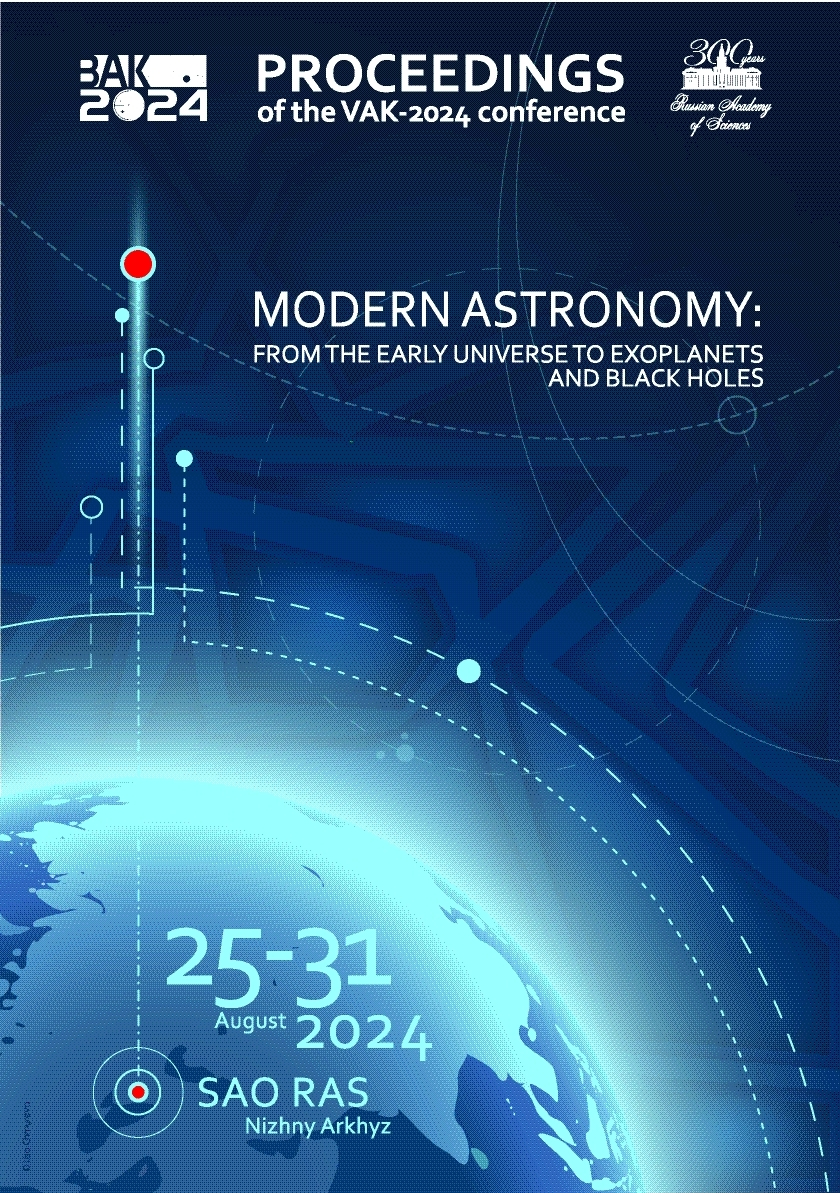Kazan Federal University
UDC 53
UDC 520
UDC 521
UDC 523
UDC 524
UDC 52-1
UDC 52-6
CSCSTI 41.00
CSCSTI 29.35
CSCSTI 29.31
CSCSTI 29.33
CSCSTI 29.27
CSCSTI 29.05
Russian Classification of Professions by Education 03.06.01
Russian Classification of Professions by Education 03.05.01
Russian Classification of Professions by Education 03.04.03
Russian Library and Bibliographic Classification 2
Russian Library and Bibliographic Classification 223
Russian Trade and Bibliographic Classification 614
Russian Trade and Bibliographic Classification 6135
BISAC SCI004000 Astronomy
BISAC SCI005000 Physics / Astrophysics
The most crucial problem in constructing a coherent model of the universe is the behavior of spacetime in the vicinity of the event horizons of black holes (BH). These regions can be accessible to direct observations only at low rates of spherical accretion. Based on the analysis of the current characteristics of interstellar gas turbulence, it has been shown that the spherical mode of accretion, unlike the disk mode, occurs at sufficiently low densities of the medium (excluding clouds and ``hot'' zones). In this case, disks can form only around virtually stationary Kerr and Schwarzschild BHs.
stars: black holes; accretion, accretion disks; ISM: clouds
1. Almheiri A., Marolf D., Polchinski J., et al., 2013, Journal of High Energy Physics, 2013, p. 62
2. Armstrong J., Rickett B., Spangler S., 1995, Astrophysical Journal, 443, p. 209
3. Beskin G. and Karpov S., 2005, Astronomy & Astrophysics, 440, p. 223
4. Bondi H. and Hoyle F., 1944, Monthly Notices of the Royal Astronomical Society, 104, p. 273
5. Cen R., 2021, Astrophysical Journal Lettrers, 906, id. L4
6. Chepurnov A. and Lazarian A., 2010, Astrophysical Journal, 710, p. 853
7. Davies R. and Pringle J., 1980, Monthly Notices of the Royal Astronomical Society, 191, pp. 599
8. Hawking S., 2005, Physical Review D, 72, id. 084013
9. Illarionov A. and Sunyaev, R., 1975, Astronomy & Astrophysics, 191, p. 599
10. Larson R., 1981, Monthly Notices of the Royal Astronomical Society, 194, p. 809
11. Lee K. and Lee L., 2019, Nature Astronomy, 3, p. 154
12. Ruffert M., 1999, Astronomy & Astrophysics, 346, p. 861
13. Susskind L., Thorlacius L., Uglum J., 1993, Physical Review D, 48, id. 3743
14. Will C., 2006, Living Reviews in Relativity, 17, p. 4
15. Zeldovich J.B. and Novikov I.D., 1971, The Theory of Gravitation and Evolution of Stars, Moscow: Science






